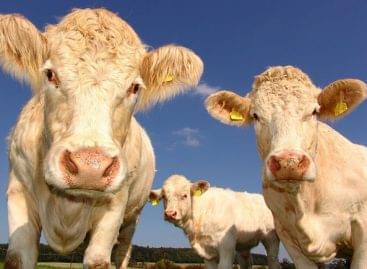Fake news about roundworms shakes the US cattle market
A misleading press release caused cattle futures to fall more than 2% on the Chicago Mercantile Exchange. U.S. authorities have launched an investigation, as farmers and traders alike watch the spread of the roundworm.
 On May 27, a fake press release was posted on the website of a northwest Missouri radio station claiming that the “New World” roundworm (Cochliomyia hominivorax) had appeared in the state of Missouri. The announcement spread quickly and caused significant panic in agricultural markets: the price of live cattle futures contracts fell by almost 2%, while trading volume increased by 77% compared to the previous week.
On May 27, a fake press release was posted on the website of a northwest Missouri radio station claiming that the “New World” roundworm (Cochliomyia hominivorax) had appeared in the state of Missouri. The announcement spread quickly and caused significant panic in agricultural markets: the price of live cattle futures contracts fell by almost 2%, while trading volume increased by 77% compared to the previous week.
The Missouri Department of Agriculture officially announced on Friday that it had launched an investigation into the matter, given the serious economic consequences of the false news. The report has since been removed, but the market impact was still felt, especially at a time when real-world health threats are also a cause for growing concern.
The New World tapeworm is a highly contagious parasite that feeds on living tissue and can kill livestock, especially cattle, if left untreated. U.S. agricultural officials have been closely monitoring the worm’s spread in Central America for weeks, particularly in Mexico, where the parasite has already spread some 700 miles (1,125 kilometers) to the U.S.-Mexico border.
As a precautionary measure, the U.S. Department of Agriculture (USDA) indefinitely suspended imports of cattle from Mexico in May to prevent the tapeworm from entering the country. The decision is already having an impact on the global beef trade.
Trader’s lesson
The current case highlights how sensitive agricultural markets are to news about animal health risks – even if they later turn out to be false. Based on market trends previously analyzed by Trade magazin, it can be stated that food safety, animal welfare considerations and the rapid flow of news are keeping the entire global meat industry under triple pressure.
For market participants, not only biological risks but also information risks represent a serious source of danger. In the future, transparency, real-time validation and proactive communication may be the most effective means of protection.
Related news
Expensive snacks – you have to dig deeper into your wallet for meat
🎧 Hallgasd a cikket: Lejátszás Szünet Folytatás Leállítás Nyelv: Auto…
Read more >Disrupted market, uncertain future – foot-and-mouth disease epidemic could have serious consequences
🎧 Hallgasd a cikket: Lejátszás Szünet Folytatás Leállítás Nyelv: Auto…
Read more >Related news
MOHU: 5,200 return points are in operation, but 47 larger settlements still do not have RE points – public “enema” machines may be introduced
🎧 Hallgasd a cikket: Lejátszás Szünet Folytatás Leállítás Nyelv: Auto…
Read more >GDP growth in OECD member countries slowed to 0.3 percent in the last quarter of last year
🎧 Hallgasd a cikket: Lejátszás Szünet Folytatás Leállítás Nyelv: Auto…
Read more >








